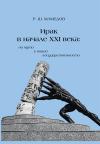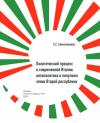The Eagle’s Gaze
Russia' s traditional symbol is a double-headed eagle. It represents the geographical and political position of the country, caught between the West and the East and destined to look at its opposite boarders. After centuries spent committing mainly to Europe, at the time the centre of the modern world, Russia is now shifting its glance towards the Orient, where the sun is chaotically rising. The aim of this blog is to analyze how the West and Russia relate to each other about politics, economy and culture and what are the promises and expectations coming from East Asia. Indeed, on the western side there are several different positions over these topics, and national policies often clash one with another. Financial and industrial interactions, energy geopolitics, value systems and cultural backgrounds of the opposite sides are all themes to be debated in the blog. I am going to analyze what scenarios Russia is most likely to see and which role it is going to play in the West and the East, assessing which of the two eagle's heads will lead the country through the future decades. About the author: I study international relations and political science at Catholic University of Milan, Italy. Passionate of foreign affairs, especially regarding Asia and the Middle East, I have already ran other blogs about these issues. My research is currently focused on the political implications of the natural and liquefied gas markets.
Новые записи
Прошедший опрос
-
Какие угрозы для окружающей среды, на ваш взгляд, являются наиболее важными для России сегодня? Отметьте не более трех пунктов
Увеличение количества мусора 228 (66.67%) Вырубка лесов 214 (62.57%) Загрязнение воды 186 (54.39%) Загрязнение воздуха 153 (44.74%) Проблема захоронения ядерных отходов 106 (30.99%) Истощение полезных ископаемых 90 (26.32%) Глобальное потепление 83 (24.27%) Сокращение биоразнообразия 77 (22.51%) Звуковое загрязнение 25 (7.31%)

«Международные исследования в России»

Статистические данные по международной проблематике

Электронные журналы и библиотеки



